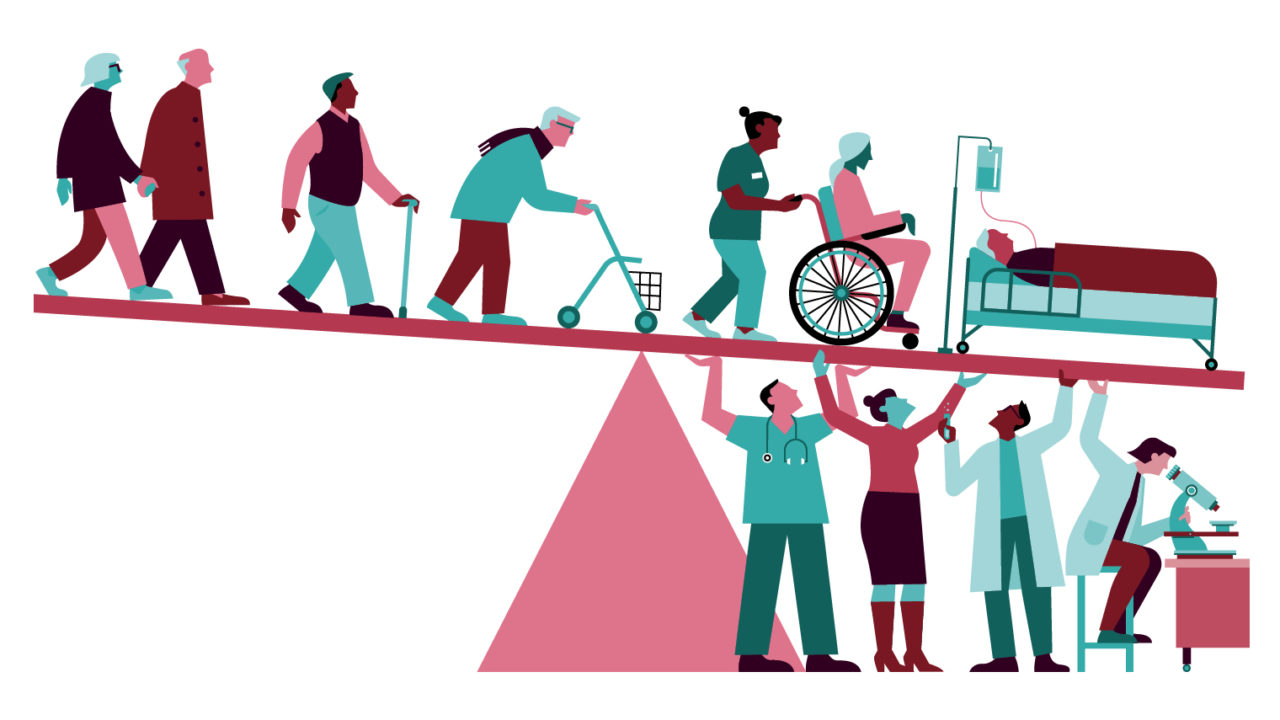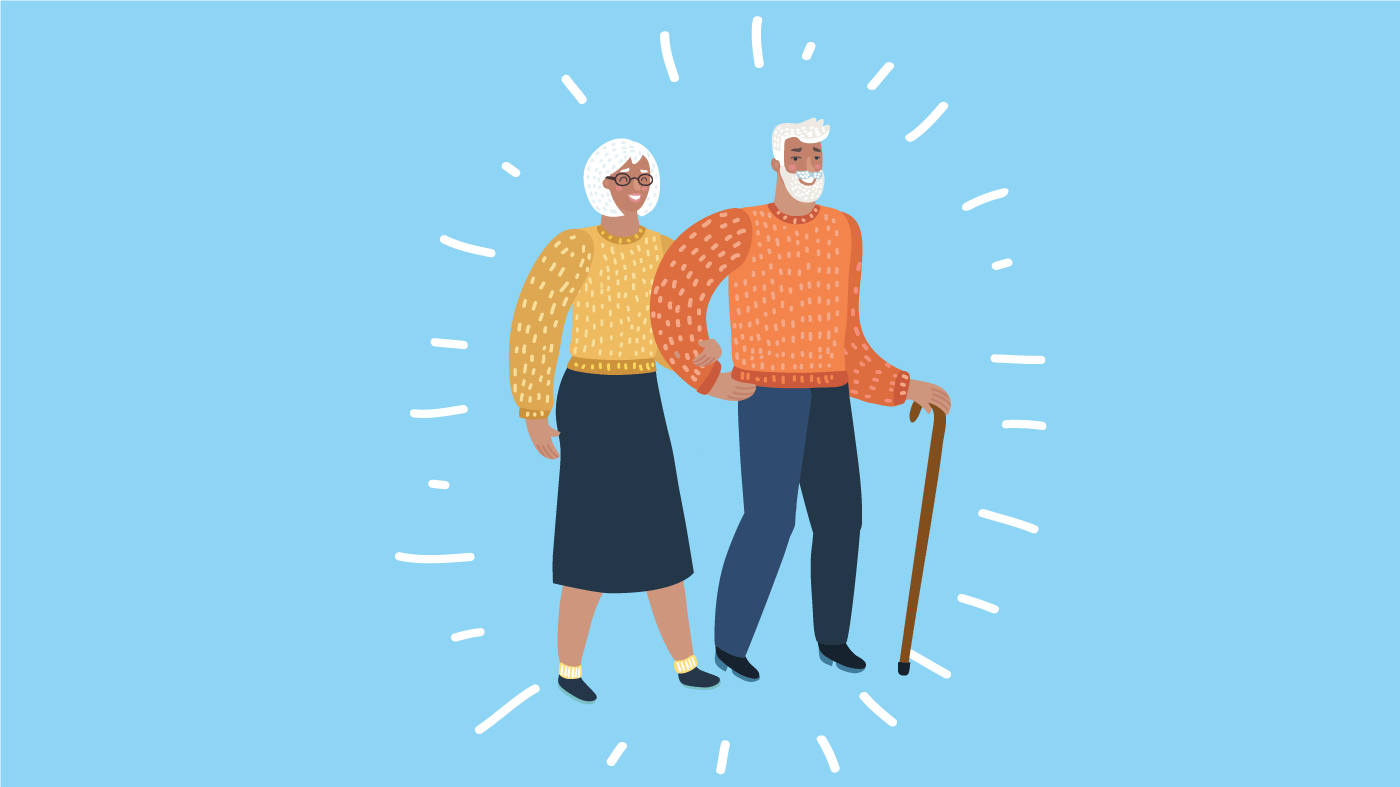By Charalampos Karouzos,
Throughout human history, the will to live a long and healthy life has been the ultimate goal of all civilizations. Societies were formed to fulfill the fundamental human needs, one struggling to perform by themselves alone. The boisterous will to conquer the unavoidable death has been the driving force of human development and advancement. In fact nowadays, and from the beginning of the 19th century life expectancy has been on the rise in all countries and especially in the richer ones. Even in the poorest countries, however, the life expectancy today is much higher compared to the highest in the 1800s. Humans have drastically increased their length and quality of life, but the naturally set limit of years is still to be broken.

In the graph above, one can appreciate the significant increase in the life expectancy of the continents and the world in the last century. Life expectancy observed is composed of two factors the health span and the morbidity span. The health span is the period of the life of an individual in which the human is healthy. Morbidity on the other hand is the period in which an individual suffers from a condition that eventually leads to death. Current medical treatment functions as a decelerator to the rapid progression of the morbidity period eventually leading to death. Thus, the Health-span of a person, which is subjected to many intraindividual factors, is not enhanced by current biomedical interventions, as the anti-aging medication is speculated to act. During the Health-span, treatment aims to limit the existing risk factors for future conditions and eliminate the primary, undetectable stages of disease development.
The life expectancy of people has been increasing expediently over the last decades, now reaching a median age of over 80 in rich countries, however, what cannot be observed in the graft is the maximum lifespan which has remained unchanged since 1997, when the oldest known human of 122 years old (!) died. People grow older at a previously unseen rate; the number of centenarians doubles every ten years but the golden number of 122 has not been reached for more than 25 years! Therefore, demographic and scientific data used to suggest that the natural limit of human life is ought to be around 125 years. However, today’s researchers are proposing that the 125 mark may not be a dead end and can be overpassed.
Initially, one major constraint in the increase of life expectancy is the quality-of-care older people receive during their morbidity. To be more specific on the conflicting issue, people of old age tend to be segregated by most publicly funded health care systems as, the cost along with the outcome of the treatment does not support the value of justice among patients (in publicly funded health systems, resources are limited and thus must be divided to patients with two goals in mind justice and efficiency). In fact, the proper criteria for differentiating patients should not be the absolute age but the quality of the health of an individual. Criteria set, acknowledge that younger people usually are healthier than older individuals, however that is not always the case and this prejudice prevents healthy citizens from access to treatment. A straightforward example of injustice is the case of transplantations. Patients in need of them are placed on lists categorized based on many health factors and age is unfairly one of them. Older, but healthier humans can not have access to a transplant, thus their life expectancy is significantly decreased.
To further explain, morbidity is the period of life one will meet death due to an illness. The medical condition is usually one or more age-related conditions that can not be prevented. Still, current medical procedures are able to form a management plan to minimize suffering and maximize the quality of life years. For instance, the administration of insulin in diabetic patients extends their life without reversing the disease. All humans that completed their health span will eventually follow into the morbidity stage. The striking difference between centenarians is that they experience morbidity much later in life due to an increased health span. Morbidity can only be prevented or shortened by halting someone’s life abruptly (accidental death) or by choice (euthanasia, suicide).


Further, apart from drug-based therapy, humans can implement lifestyle changes proven to reduce age-related diseases. Xiu Yun Wu’s study concluded that a higher level of physical activity and less time spent on sedentary behavior are associated with increased health-related quality of life among the general population of children and adolescents. Also, the researchers found a dose-dependent association between the quality of life and the amount of exercise performed. In addition, simpler changes like calorie restriction, first proposed by Clive McCay in 1935 (!), have been proven to extend life in individuals by minimizing growth and thus preventing the advancement of age-related conditions. Specifically, it has been speculated that a 30% calorie restriction (CR) diet increases health span by 22%.
Concludingly, the great rise in life expectancy compared to the previous century has been an astonishing advancement for humankind. People nowadays have more time to enjoy life, make memories, love, to explore. More life however is not achieved by preventing death, but we found ways to postpone it significantly to a point in which ethical concerns are raised regarding immortality and its consequences. Skeptics are hesitant regarding the will of people to live forever. They bring forward that such advancements act irresponsibly like the ancient Greek goddess Eos that asked Zeus to make her lover Tithonus, a common human, immortal; forgetting to ask for him to be granted eternal youth, leading to his suffocating in living endlessly. Increasing our life expectancy, preventing death, and gaining more life years is probably the greatest difference between humans in comparison to other species, however, the manifestations of a constantly increasing age population are yet to be fully understood creating a novel status quo for the world.
References
- Wang, Nelson, et al. Cholesterol lowering: to live longer, start younger?. Aging 2020 (pg 3119-3120)
- Teixeira, Laetitia et al. To live or die: what to wish at 100 years and older. Frontiers in Psychology: September 2021 Issue (pg 1-10)
- Hargreaves, Shila Minari, et al. Vegetarian Diet: an overview through the perspective of quality of life domains. International Journal of Environmental Research and Public Health: 2021 Issue (pg 1-23)
- Ramsey, John, et al. Honoring Clive McCay and 75 Years of Calorie Restriction Research. The Journal of Nutrition (pg 1205-1211)
- Blagosklonny, Mikhail. No limit to maximal lifespan in humans: how to beat a 122-year-old record. Oncoscience Volume 8, 2021 (pg 110-120)
- Sun, Hui, et al. The influence of physical activity, sedentary behavior on health-related quality of life among the general population of children and adolescents: A systematic review. PLOS ONE, November 9, 2021 (pg 1-29)




